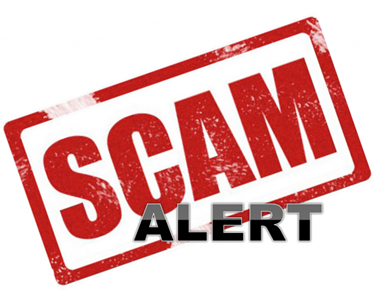ITS is aware of an influx of Gift Card scam emails received by members of the Middlebury community. These are indeed scams, identified as such by the FTC and other sources (see below). This variant seems to be spoofing faculty/staff members, using external email addresses from service providers like aol.com
https://www.consumer.ftc.gov/blog/2018/10/scammers-demand-gift-cards
https://abc7chicago.com/finance/gift-card-scam-uses-bosses-email-addresses-when-phishing/4556080/
https://blog.knowbe4.com/scam-of-the-week-the-boss-needs-itunes-gift-cards-for-customers…-now
Please forward any Gift Card scam emails to phishing@middlebury.edu so that the sender addresses can be blocked! Also see the How To Report Scams info below the FTC article.
From: https://www.consumer.ftc.gov/blog/2018/10/scammers-demand-gift-cards
“Gift cards are a great way to give a gift. But did you know they are also a scammer’s favorite way to steal money? According to the FTC’s new Data Spotlight, more scammers are demanding payment with a gift card than ever before – a whopping 270 percent increase since 2015.Gift cards and reload cards are the #1 payment method for imposter scams. More scammers are demanding payment with a gift card. The percentage of consumers who told the FTC they paid a scammer with a gift card has increased 270% since 2015. Reports to the FTC say scammers are telling people to buy gift cards at Walmart, Target, Walgreens, CVS and other retail shops. 42% of people who paid a scammer with a gift card used iTunes or Google Play. Federal Trade Commission. ftc.gov/complaint. ftc.gov/giftcards
Gift cards are for gifts, not for payments. If someone calls with urgent news or a convincing story and then pressures you to pay them by buying a gift card, like an iTunes or Google Play card, and then giving them the codes on the back of the card – stop. It’s a scam.
Gift cards are the number one payment method that imposters demand. They might pose as IRS officials and say you’re in trouble for not paying taxes; or a family member with an emergency; or a public utility company threatening to shut off your water; or even a servicemember selling something before deployment. Or they might call with great news – you’ve won a contest or a prize! But to get it, you need to pay fees with a gift card. Scammers will say anything to get your money. And they know how to play into your fears, hopes, or sympathies. They like gift cards because, once they’ve got the code on the back, the money is gone and almost impossible to trace. But knowing how these scams work can help you avoid them, and you can help even more by passing on the information to people you know.
If you paid a scammer with a gift card, report it as soon as possible. Call the card company and tell them the gift card was used in a scam. Here is contact information for some of the gift card companies that scammers use most often. Then, tell the FTC about it – or any other scam – at ftc.gov/complaint. Your reports may help law enforcement agencies launch investigations that could stop imposters and other fraudsters in their tracks.”
How To Report Scams
Amazon
- Call 1 (888) 280-4331
- Learn about about Amazon gift card scams here.
Google Play
- Call 1 (855) 466-4438
- Report gift card scams online here.
- Learn about Google Play gift card scams here.
iTunes
- Call 1 (800) 275-2273 then press “6” for other, then say “operator” to be connected to a live representative.
- Learn about iTunes gift card scams and how to report them here.
Steam
- If you have a Steam account, you can report gift card scams online here.
- Learn about Steam gift card scams here.
MoneyPak
- Call 1 (866) 795-7969
- Report a MoneyPak card scam online here.




 Do you have any new staff members joining your team in the coming months? Information Technology Services (ITS) offers a monthly workshop with new hires in mind called “ITS & You: Technology Services Overview.”
Do you have any new staff members joining your team in the coming months? Information Technology Services (ITS) offers a monthly workshop with new hires in mind called “ITS & You: Technology Services Overview.”